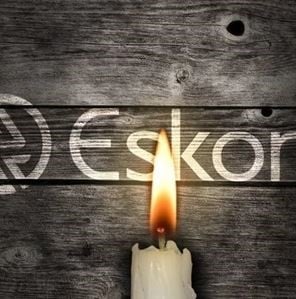
Little commitment was shown to take proposals on board, using them instead to compile a report.
The emergency process to buy up to 3 000 megawatts of extra electricity from the private sector on an “urgent basis” amounts to little more than an exchange of ideas to prepare a report for the department of mineral resources and energy.
This became clear at the department’s information session this week, and left the more than 200 businesspeople who showed up with possible solutions to Eskom’s power generation challenges, frustrated.
The formal request for information (RFI), which was announced last month, asked for submissions on solutions that involved any technology for electricity procurement over a period of three, five, 10 and 20 years.
The information session took place on Wednesday at the department’s independent power procurement (IPP) office in Centurion.
At the packed gathering, in which even standing room is short supply, representatives from the energy department answered questions about the RFI process.
This week, Eskom said it wanted a 5 000MW electricity buffer to be available so that it could conduct better maintenance. While this could mean more regular load shedding, an additional 3 000MW – which would be brought on line urgently, as Energy Minister Gwede Mantashe and President Cyril Ramaphosa appeared to indicate – would have relieved much of the pain.
At the time of the announcement, the department said that electricity procurement processes under normal circumstances took at least 36 months. But the emergency process – which was proposed as a partial solution – would change all that.
“The RFI will enable the department to have a sense of immediate generation options available [three to 12 months] to help fill the short-term gap,” the press statement indicated.
Mantashe followed the announcement up in a speech, delivered at the global launch of the International Energy Agency 2019 Coal Report on December 19. He said government would act with the “necessary speed” and that the RFI would spell out options for connecting the 3 000MW to the grid in the shortest possible time, at the lowest cost possible.
“We ask the [electricity sector] to help us with this,” he said.
In an opinion piece published in Daily Maverick, Ramaphosa called the process “a power purchase programme to fill the current short-term supply gap and to reduce the use of expensive diesel generators during peak times”.
However, at the meeting, it soon became clear that the RFI was not focused on finding immediate solutions to the electricity crisis, nor was it even clear that eventual power purchases would be a certainty, as Ramaphosa had said.
Read: ‘SA bent over backwards for Eskom’: Nersa heads to court
But Maduna Ngobeni, a senior manager in the department, curbed the enthusiasm of those eager to contribute to resolving the power crisis when he said that the result of the formal process that had now been started would be a report to the department by the end of next month. Thereafter, government would decide if and how power could be purchased.
- Why waste time asking for information rather than contracting for additional power generation immediately? According to officials, the information they have is out of date. Government last tested the market in 2015.
- When will the fifth bid round for renewable energy kick off? According to Maduna, this is a separate process that is being managed independently.
- Why are the limitations on electricity provision by existing independent power producers not being lifted? According to the SA Wind Energy Association, it can unlock 500MW of electricity by merely signing a piece of paper, provided that the restrictions are lifted.
Officials said additional power provision would be considered during the RFI process.
- Why can’t the bureaucratic process for the private generation of less than 10MW and for that above 10MW be simplified? According to the SA Photovoltaic Industry Association, this could unlock about 2 000MW.
The businesspeople were requested to outline all the bottlenecks in their presentations. The IPP department is said to be in conversation with the National Energy Regulator of SA about this issue.
- Who says Eskom won’t simply throw another spanner in the works? An official said they had “learnt from previous experiences” and were therefore consulting with Eskom. There would be no power purchase process without Eskom being on board.
Businesspeople who thought that government would cut through red tape to tackle the crisis were also in for bad news as officials from the department assured those attending the meeting that they would comply with all protocols, legislation and processes, such as the Public Finance Management Act.
“We will not proceed unless we check all the boxes,” said Maduna.
An industry leader who did not want to be identified told City Press’ sister publication Rapport that it was “inexplicable” that it could be business as usual during an emergency.
He said Eskom and government had known that they would need an additional 5 000MW for months, but persisted with targeting only 3 000MW in the process.
Bernard Bekink, a professor in public law at the University of Pretoria, said it was an established principle that government could deviate from comprehensive acquisition processes in emergency situations to speed up processes and decisions.
He said the exact mechanisms to be used could differ and that it could be triggered by different functionaries – in this case, the ministers of energy and finance, as well as the president. But it was legally possible.
Eskom was fundamental to the economy, added Bekink, and the current electricity crisis justified such measures.
The closing date for submissions on the current RFI is January 31.
 | ||||||||||||||||||||||||||
Get in touchCity Press | ||||||||||||||||||||||||||
| ||||||||||||||||||||||||||
| Rise above the clutter | Choose your news | City Press in your inbox | ||||||||||||||||||||||||||
| City Press is an agenda-setting South African news brand that publishes across platforms. Its flagship print edition is distributed on a Sunday. |




 Publications
Publications
 Partners
Partners








